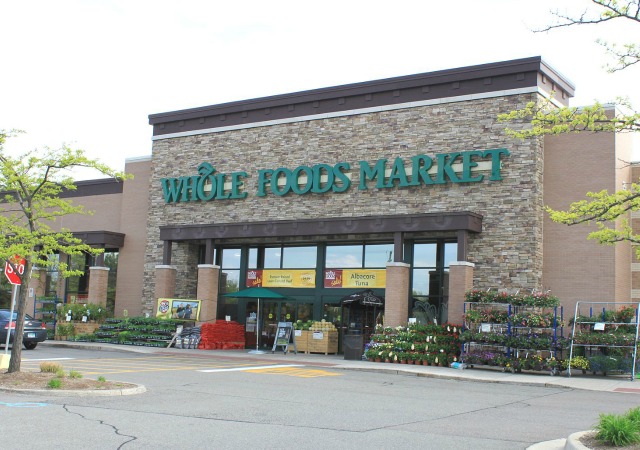Amazon Will Slash Whole Foods Prices on Monday

Amazon passed two major hurdles on Wednesday after the U.S. Federal Trade Commission and Whole Foods’ shareholders cleared the way for the internet giant to acquire the grocery chain.
With that out of the away, Amazon is going all in and has already announced it plans on slashing Whole Foods prices as early as Monday.
From CNN Money:
Amazon said Thursday that its takeover of Whole Foods (WFM) will close on Monday, and its first order of business will be to make some items more affordable, according to a release.”Whole Foods Market will offer lower prices starting Monday on a selection of best-selling grocery staples across its stores, with more to come,” the company said in a statement.Items that will be marked down on Monday include organic avocados, organic brown eggs, organic salmon, almond butter, organic apples and organic rotisserie chicken. Amazon said it’ll keep the markdowns coming, and that Amazon Prime members will get additional discounts at Whole Foods.”Everybody should be able to eat Whole Foods Market quality — we will lower prices without compromising Whole Foods Market’s long-held commitment to the highest standards,” Jeff Wilke, CEO of Amazon Worldwide Consumer, said in a statement.
The announcement has already sent other grocery stores stocks into a downward spiral. From The Wall Street Journal:
Stocks for six large food retailers, including Kroger Co. and Wal-Mart Stores Inc., WMT -2.03% lost around $12 billion in value after the announcement. Shares of grocery-store companies had already been battered since the deal was announced in June, and analysts say they expect grocery stocks could fall further.—Shares of Kroger fell by more than 8% on Thursday, while those in Wal-Mart and Costco Wholesale Corp. also traded lower. Shares in United Natural Foods , Inc., Whole Foods’s main distributor, fell by more than 5%.
With a drop in prices, Amazon can bring people in who want to shop at Whole Foods, but didn’t want to pay the higher prices.
Not only that, but it can bring back customers. Whole Foods used to be the dominant force in the organic market, but other stores began to follow and offered organic and natural foods. Customers also went to Sprouts, which is a low key version of Whole Foods.
The company had to lower prices two years ago when sales began to drop. The Wall Street Journal continued:
Whole Foods, based in Austin, Texas, began lowering prices roughly two years ago to reverse a sales slump. It also ran promotions and advertised on television for the first time in years.Still, Whole Foods continued to lose sales and shopper surveys have shown that many customers believe the chain is too expensive. A Morgan Stanley survey earlier this month found that while Whole Foods prices were down slightly from last year, they still were roughly 15% higher on average than regional supermarkets.
CLICK HERE FOR FULL VERSION OF THIS STORY